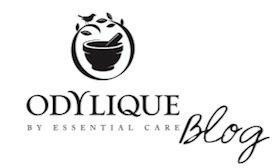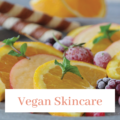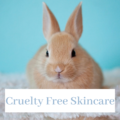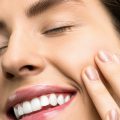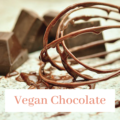
The sale of organic and vegan products has seen rapid growth over the past few years.More and more people are paying attention to what they put on their hair and skin and how their purchases have a wider impact. However, without strict advertising standards, companies are able to claim ‘vegan’, ‘organic’ and ‘cruelty free’ without any third party guarantee …which can be pretty confusing for consumers!
So what does vegan shampooreally mean, and why are some products better than others? How can you tell what’s worth spending your money on and who is worth supporting?
Vegan Shampoo Explained
Put simply, vegan shampoo shouldn’t contain any ingredients derived from animals and shouldn’t be associated with animal testing.This includes the development and production of the product and its ingredients, and its approval for sale in all countries around the world. In our eyes, vegan shampoo should be cruelty-free and visa versa.
This sounds straightforward enough, but with growing demand for vegan products, many brands market themselves as animal-friendly, when it’s not always the case.
One way to choosea genuinely vegan product is to ensure independent certificationor accreditation. Products can be certified vegan or cruelty-free by various independent bodies – The Vegan Society, PETA or The Naturewatch Foundation, for example.
They will ensure good practice all the way along the supply chain and throughout the company. – Although some products are technically cruelty-free, sometimes the companies they come from are not,and by continuing to buy from them, you’re unknowingly supporting unethical treatment of animals.
For example, certain well-known brands claim to be ‘cruelty free’ in certain areas but allow their products to be sold in brick and mortar stores in China…where they still require testing on animals before selling to the public. Are they really cruelty-free?
We also question the ethics behind ‘cruelty-free’ brands owned by larger corporations who own other brands that dotest on animals. These corporations clearly don’t hold the veganand cruelty-free values many of their customers are looking to support and instead seem to be profiting from the ‘cruetly-free trend’…should consumers continue to back them?
Genuine vegan products help protect the welfare of animals by omitting anything animal-based from their ingredients and should come from brands who hold the same veganand cruelty-free principles as their customers.
Vegan…But Not Organic?
Vegan products do not automatically mean they are ‘clean’ and exclude harsh, synthetic ingredients.
Many vegans choose their lifestyle to protect the lives and health of animals, but the production and use of synthetic chemicals used in so many of our products can have a detrimental impact, even if the product is classified as vegan. So, when searching for a vegan shampoo, we think it’s important that it is also organic.
Although vegan shampoos don’t test on animals or use animal-derived ingredients, they can still be full of chemicals that are bad for your health and have a negative environmental impact, consequently impacting wildlife.
One of the ingredients you’ll find in conventional products are pesticides– and they’re not listed on the bottle! Due to the way ingredients are farmed, pesticide residue can linger in our products. But is buying a product, where the ingredients were sprayed with a substance designed to kill off insects, really cruelty-freeand vegan?
As well as the direct impact on killing certain types of wildlife, pesticides have been found in UK soil and waterwith the potential to affect other forms of wildlife, like birds and bees.
When you choose shampoo that is genuinely organic,it shouldn’t contain any synthetic ingredients or ingredients farmed with pesticides.
Lots of brands now claim ‘sulfate free’ and ‘paraben free’ status and whilst this is a step in the right direction, there are still many artificial ingredients used in haircare. By choosing trulyorganic shampoo, you can be confident you are limiting your own exposure and the impact these ingredients can have.
How can you make sure your shampoo is organic?
Make sure it is independently certified, just like you would with a ‘vegan’ product. There are a few different certifying bodies out there, but The Soil Association has some of the strictest standards in the world – and are who Odylique choose to be certified with. 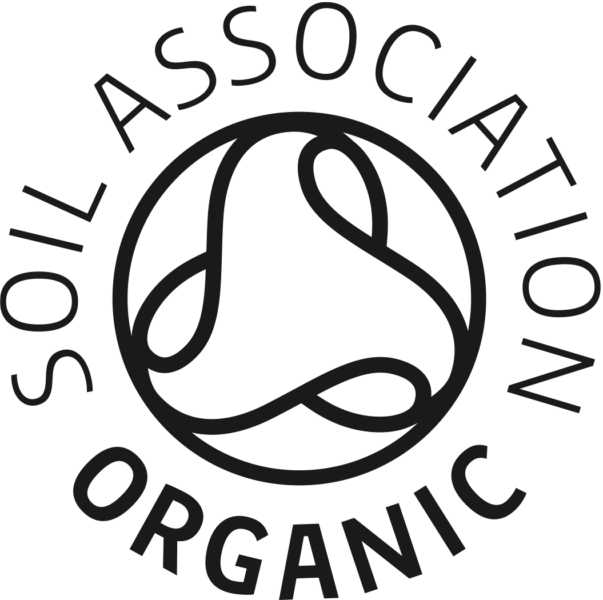
Check the label
Although an independently certified organic product should provide you with the peace of mind you need, it is still a good habit to check the ingredients label to determine how natural a product really is, especially if you’re unsure if the product is independently certified or not. This may sound like a lot of effort, but once you’ve found a product that works for you and encompasses everything your searching for – your search is over!
Not only are you making a positive impact when you buy organic shampoo, but you’re also going to see a difference in the health of your hair!
Most conventional shampoos contain sodium sulfates, parabens, plastic-like silicones and synthetic fragrances, which can cause dry hair and an itchy scalp. In cutting out these harmful synthetic ingredients, you can benefit from healthier hair overall.
Where can I find a great organic, vegan shampoo?
Why not give the Odylique Gentle Herb Shampoo a try? Our shampoos are cruelty-free and vegan – from the way we source our ingredients all the way through to how we package our products. Not only that, but our ingredients are fairly traded and organic to really ensure that no animals were harmed in the making of them. Some of our customers even use our shampoo on their pets! 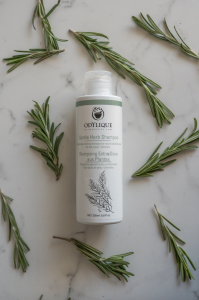
Odylique believe animal testing in any shape or form is barbaric, unnecessary and frankly, irrelevant.
Odylique products have of course never been tested on animals, we use a panel of human volunteers to test each and every one of our products and also use the precautionary principle to determine whether an ingredient is acceptable in our organic health and beauty products. In other words, “if in doubt, do without” – if any research casts doubt over the ingredient’s safety to humans or the environment, we will not use it.
We also go the extra step and also ensure our ingredient suppliers do not test on animals either. We won’t buy ingredients that have been tested on animals since 1990 (our ‘fixed cut-off date’ FCOD).
We are proud to be accredited by both PETA and the Naturewatch Foundation who campaign relentlessly to make the world a cruelty free place.PETA accredited companies – and their parent companies – must be cruelty free and prove they have a system in place to check all a brand’s suppliers do not endorse, fund or conduct animal experiments.
The Naturewatch Foundation insists that brands endorsed in its Compassionate Shopping Guide have a fixed cut-off date policy in place. In other words, a company won’t use any newly developed ingredients which have been subject to animal testing after their chosen cut-off date. Naturewatch monitors the policy of any parent company too, to ensure the brand isn’t indirectly funding unethical practices (including animal testing) carried out by a parent company or any other subsidiaries.
More Advice?
If you’d like any more advice on vegan shampoo or any of our products, please do email us – customercare@odylique.co.uk, add your question as a comment below, or call 01638 491022 – we’re here to help!
What is Dandruff? How To Beat A Flaky Scalp Naturally.

You take care of your hair; you wash it regularly,…
